#lady pole
Text

Lady Pole wearing gentlemen's clothes. You agree
#she can do a little crossdressing. as a treat#she's off to seduce arabella#jonathan strange and mr norrell#lady pole#emma wintertowne
15 notes
·
View notes
Text

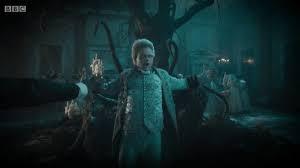
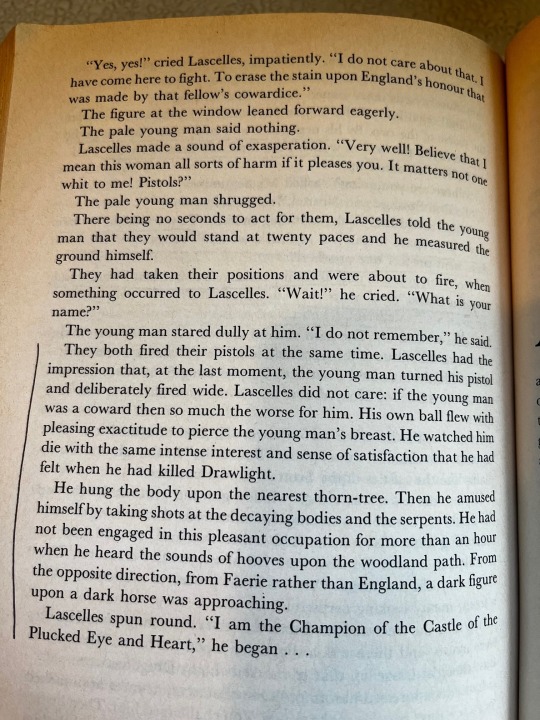
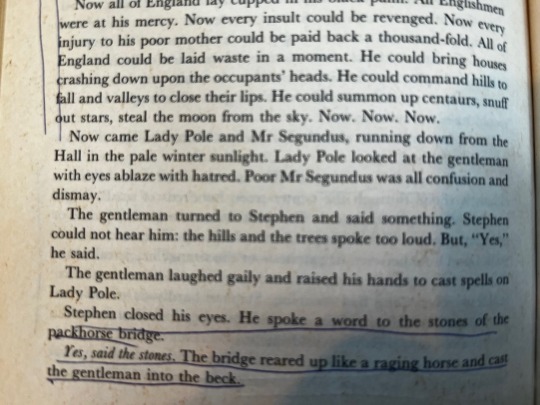
Since I finished watching The Terror I've been thinking about "The Jonathan Strange and Mr Norrell to The Terror Pipeline" (cf. Tumblr user pudentilla). I came to the show because a number of people I followed for JSAMN posts were also posting about The Terror, and naturally I was like, dudes on ships looking very cold and rather gay, what is this. Of course, I liked it immediately, but the reason for the "pipeline" still seemed fuzzy.
I joined this conversation about Tuunbaq's role in the story--how The Terror would still be a great show without the demon bear, but his presence definitely adds a certain whatsit--but things didn't really crystallize for me until I was reading an article that discussed speculative fiction as a form of resistance to the Western, colonialist, capitalist, masculinist model of literature that is often unfortunately dubbed "realist" fiction.
It would be easy to write The Terror as a "realist" narrative about the doomed Franklin expedition. All you do is take out Tuunbaq. It would still be excellent. And yet Tuunbaq--the entity that turns the story into speculative fiction--is the force that overwhelms the entire Western, colonialist, capitalist, masculinist enterprise.
I was fascinated by the end of Mr. Hickey: on the one hand, he appears to reject his native culture in favor of reinventing himself as a wild cannibal shaman of the frozen north. On the other hand, everything about what Hickey wants/tries to do is colonialist, exploitative, and driven by the urge to dominate. He fantasizes that he's connecting with Tuunbaq, but he doesn't understand it at all. And then it eats his face.
That was the fantasy moment that made me think ohhhh, what a beautiful connection. Magic in Jonathan Strange and Mr Norrell is always and forever the enemy of colonialist, capitalist, masculinist domination. Lots of other people have blogged about this (recently @fluentisonus, good stuff), and I won't rehash that in detail here. But in JSAMN, magic puts itself into the hands of a Black man, servants, women, people who reject conquest and domination as a way of living. It rescues and sustains those people (like Tuunbaq brings Silna a nice fat seal). But those who would use it to dominate others, it utterly crushes.
tl;dr: 1) The Terror isn't The Terror without Tuunbaq; 2) I rode the JSAMN to The Terror Pipeline and I think I get it now
#long post#speculative fiction#the terror#amc the terror#the terror amc#jonathan strange and mr norrell#jsamn#cornelius hickey#tuunbaq#stephen black#john segundus#lady pole#henry lascelles#the gentleman with the thistledown hair
124 notes
·
View notes
Text
It will never not be funny that a large part of Lord Byron’s role in Jonathan Strange and Mr. Norrell is basically:
Byron: How this weather darkens my spirits, Jonathan! Despair and genius are so often connected. Don’t you think so?
Jonathan Strange: *coked up on mouse tincture (tm), intentionally half out of his mind, screaming at invisible pineapples, starving because he won’t eat, and muttering about fairy mounds* IT WILL BE WRITTEN IN THE TREES
Lord Byron: God, I wish that were me.
#jonathan strange and mr norrell#Jonathan strange#lord Byron#Susanna Clarke spends a good chunk#of the last third or so of the book#dragging Lord Byron for all he’s worth#and I am here for it#he also#to be fair#serves as some much needed comic relief in that section#because Jonathan’s situation is bleak#and Norrell’s is too#in a different way#to say nothing of Arabella#Lady Pole#and poor Stephen Black#all three of whom are just#in a pretty hopeless scenario#so yes#I am here for the Byronic Slander
193 notes
·
View notes
Text
This is the first time it has clicked for me that very likely, Childermass sends Lady Pole to Starecross not to fulfil his promised favour to John Segundus, but because he knows that Segundus is as sensitive to magic as himself, and so is bound to notice that Lady Pole walks half in Faerie. Childermass knows that it'll be difficult for him to investigate this mystery himself once the lady is sent into seclusion, so he sends her to Segundus so that he will be tempted to continue to unravel the mystery on Childermass' behalf, although he won't know that's what he's doing. And also, I suspect, Childermass figures placing her with timid Mr Segundus means Childermass will get access to the lady if he wants it later. In that case, he has forgotten that while timid, John Segundus is not spineless.
By the way, how very lucky it is that just when a madhouse is needed, Mr Segundus has a vision that inspires him to open one at Starecross. What an incredible coincidence. Not Childermass' doing at all. Nope. He's never manipulated John Segundus in his life. Doesn't sound like him. Couldn't be.
#Jonathan Strange and Mr Norrell#John Childermass#John Segundus#Lady Pole#The sky spoke to me#But I don't speak Sky so ...#We don't learn where the vision comes from I think#But I can't imagine anything other than that Childermass conjured it somehow#I've seen it suggested that it was the Raven King himself but that seems a little too much to me despite the description of the beggar#Honestly I don't remember if Mr Childerman gets turned away from Starecross in the book too#haven't gotten there yet in current reread#I don't think there was a walnut involved though which is sad??
45 notes
·
View notes
Text

Arabella and Emma after the fairy ball | EveryWoman Exchange, for Isilloth
Also here on AO3
#jsamn#jonathan strange and mr norrell#fanart#arabella strange#lady pole#emma pole#also new designs for them because why not
205 notes
·
View notes
Text

Emma
9 notes
·
View notes
Text
Strange Ideas About Magic
Random thought that just smacked me on the back of the head:
Jonathan Strange & Mr Norrell is about neurodivergence, its different forms, how it can be utilised, and how acceptable it is in society (including who is allowed to exhibit traits of it), using magic as a metaphor.
(I’ll be talking about the books here – I don’t think that the TV show really captured this.)
Strange is almost a caricature of ADHD: fast-thinking; leaves everything to the last minute; very easily distracted; creative; extremely fast skills acquisition; hyperfixates then wanders off.
Norrell is full-on autist cliché: everything has to be neat and orderly, done in the correct fashion; he does not understand “normal people” (and doesn’t really want to) and his social skills are vestigial at best; precise, obsessive; given to infodumping; fearful of and resistant to change. When he finds someone he can actually talk to about his passions, he falls for them hard.
Magical experiences are described using synaesthesia a great deal, senses blending in ways that those who aren’t used to it find either exhilarating or distressing.
Fairies are described, essentially, as having a very intense set of neurodivergent traits, including their relationships with animals and objects, let alone their sensory differences from humanity, how less tethered they are to linear time, etc., though their lack of comprehension/ appreciation for normal/ human needs is taken to an extreme that appears cruel (and sometimes is deliberately, in the cases of some of the more powerful beings like The Gentleman With The Thistledown Hair).
The Raven King makes up his own language, for example, and I’ve lost count of how many ND people of my acquaintance (including me) have done that.
Even the book, with its many footnotes, uses a nested explanations/ off-shooting narrative/ presentation that is vastly reminiscent of the communication styles (and thought pathways) of many ND people (again, myself included)...
Then there’s the social acceptability factor: rich, white men are permitted the eccentricity of magical obsession and use of the skills that come with innate brain difference. They are given the time and space to study and perfect their use of said traits. Their personality differences are excused as eccentricity. Its potential is literally weaponised by the government and by e.g. Wellington (who advises that corralling a magician requires set goals, frequent check-ins, and supervision by/ support from “normal” people), though they struggle to think how to use magicians in peacetime. (I’m reminded here of e.g. wartime codebreakers (especially women) who found themselves unwanted by the establishment afterwards.)
It’s massively frowned on in working class people, women, and people of colour at the time of the novel. The fairies’ more intense level of divergence (and thereby superior strength and talent) is utilised by said rich, white men, but scorned as both uncomfortably exotic and too indulgent compared to what is acceptable in rich, white, academic men with milder presentation. Lady Pole’s experience is seen as hysteria. Steven Black has to mask daily, and both grow increasingly tired and misanthropic as a result. Working-class Childermass is talented, perceptive, and knowledgeable about magic, but never granted the title “magician”. Similarly, Vinculus, with all his genetic burden and talent, is not permitted the learning that might elevate him to respectability (and even then, that might only be possible post-Norrell). He is, as Childermass points out (seemingly unaware of the irony), the polar opposite of all the academic, unmagical gentlemen magicians. The tipping point between where being able to perceive reality differently is “useful” versus “a disability” is subtly woven into all sorts of parts of the book, including the various discussions about societal perceptions and treatments of “insanity”, etc. (Of particular interest is Strange’s decision to deliberately induce a form of psychosis in himself in order to alter his perceptions.)
Consider even the more “enlightened” attitudes of Strange and his pupils – Tom Levy, the more talented, non-noble, Jewish student is, on the surface, accepted despite (or because?) of the controversy of doing so, yet treated by the other students as a (usefully bright) servant. Strange (for the most part refreshingly gender-blind/ aware of the restrictions placed on women and firmly against that hypocrisy) frets that tedious social rules means that he cannot teach women without a female chaperone, yet takes the easier path of not going out of his way to find one.
And magical talent/ perception is given a different scope in the “modern”, “enlightened” times of the book in the early 19th century from how much more commonplace and acceptable it was across more social strata and genders in Mediaeval times.
I’ve been obsessed with these books since 2008, and only just seeing this parallel explicitly and consciously now is making my brain explode a bit.
Knowing my luck, I’m probably vastly behind other fandom takes on this, but I felt I just had to write it all out of my head. What are other people’s thoughts on this?
#jonathan strange and mr norrell#jonathan strange#gilbert norrell#neurodivergence#neurodiversity#neurodivergent#adhd#autism#synaesthesia#magic as metaphor#magic#classism#racism#misogyny#antisemitism#literature#stephen black#lady pole#the gentleman with the thistledown hair#john childermass#vinculus#tom levy#neurodivergence in literature#historical fiction#fantasy literature#long post#essay#oc#meta#jsamn
111 notes
·
View notes
Text


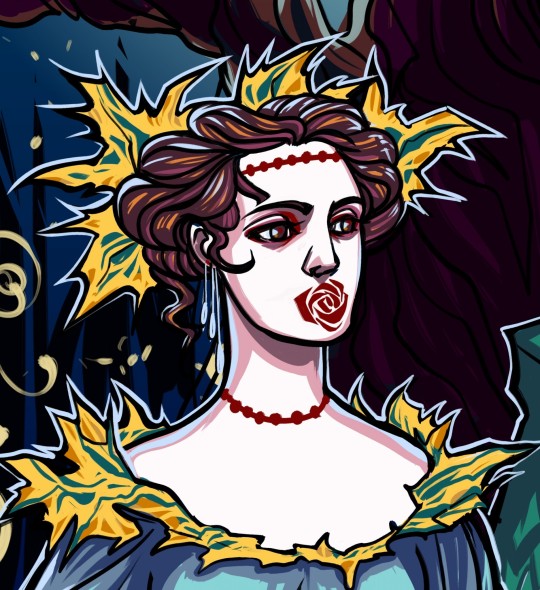
#jonathan strange and mister norrell#lady pole#the gentleman with the thistledown hair#the gentleman
24 notes
·
View notes
Photo
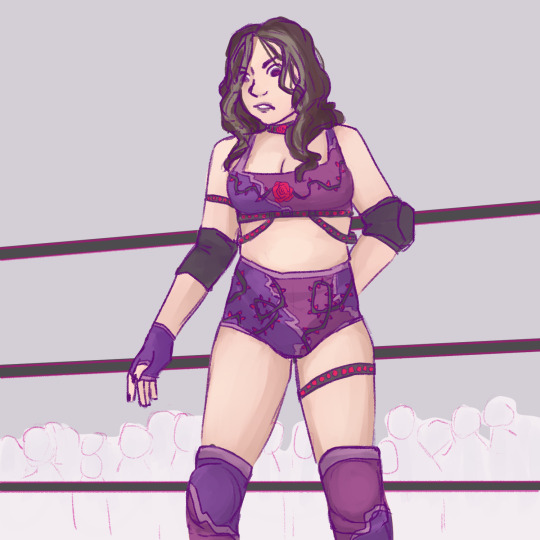


genuinely no thoughts just jsamn wrestling au
#I HAVE. MANY THOUGHTS. this is just what i WANTED to draw rn#ofc we have segundus n honeyfoot tag team. strange takes a heel turn and has his new signature move the mouse juicer.#jonathan strange and mr norrell#jsamn#lady pole#arabella strange#vinculus#john childermass#literally i have so many thoughts. many various tag team match ups but#norell is not a big wrestler he mainly tag teams w chilly and never tags in
52 notes
·
View notes
Text
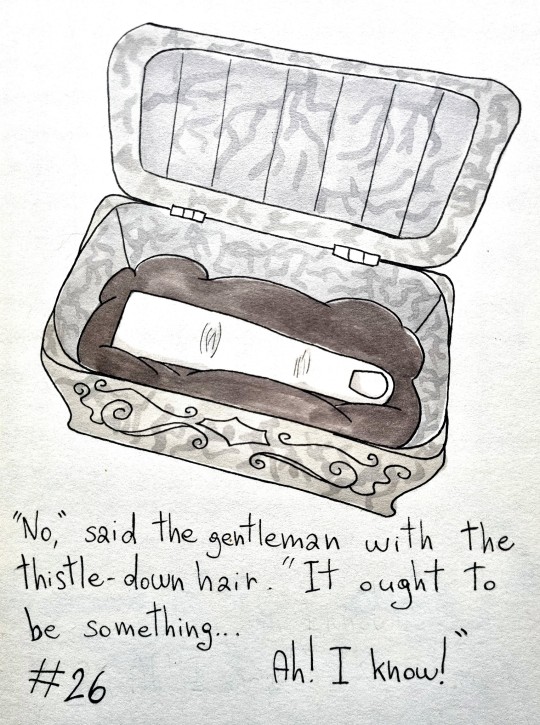
Inktober without prompt
What a nice and peculiar token to keep from your lady
#jonathan strange & mr norrell#jonathan strange and mr norrell#jsamn#js&mn#inktober#lady pole#the gentleman with the thistledown hair
14 notes
·
View notes
Text
katara marrying into the fire nation yeah good, but zuko marrying into the water tribe?? even better
#katara being the 'fire nation lady' just doesn't suit right#but zutara in south pole has my whole heart#atla#avatar the last airbender#netflix avatar#zutara#katara x zuko#zuko x katara#katara#zuko#prince zuko#water tribe
187 notes
·
View notes
Text

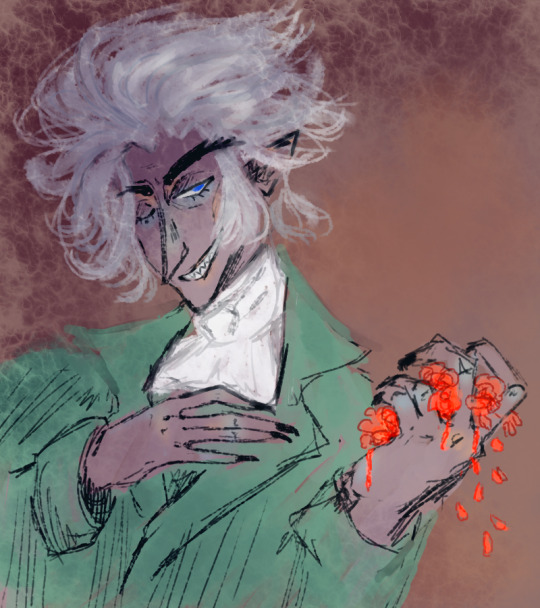
Roses
the gentleman with the thistledown hair + three of his victims
#stephen black#arabella strange#lady pole#the gentleman with the thistledown hair#jonathan strange and mr norrell#drawing
65 notes
·
View notes
Text
my perfect ending for katara was basically inejs ending in six of crows where she leaves to hunt slavers on the ships (but she always comes back <3). so like painted lady episode but larger scale enacting justice for people in the world who have no one. bc getting rid of the fire lord wasn’t just gonna fix every thing. i think that would’ve slayed soo hard and been perfect for her. even a tiny allusion to it would’ve been everything. but whatever. i Don’t care. it doesn’t bother me that she just got married and stayed home. after having to mother everyone for 3 books. it’s fine. i’m an adult. explodes .
#also in the very beginning SHE wanted to go explore the iceberg#SHE wanted to leave the north pole to help aang#like she was meant for that!!!!#almost all her centric episodes are her leading for justice in some way#the haru on the ship prison ep#the southern raiders ep (my beloved <3)#the painted lady ep#the blood bending ep#also when she litchrally fought against the northern water tribe bc they only saw women as potential wives and mothers and not benders#LIKE!!!!!!#atla
616 notes
·
View notes
Text

OUR BEST FRIEND TIMTOM CROMWELL IS BACKK YES IT GIRL SERVE <3333333
#welcome back wolf hall trilogy breakdown posting from last year#wolf hall#the mirror and the light#period drama#mark rylance#txt.me#harriet walter as lady pole helloooooooooooo#thinking about seeing timtom cromwell and his dad master cardinal wolsey on screen together again................ HELP ME
127 notes
·
View notes
Text
my absolute fave thing to read in punkflower fics is lovesick puppy hobie brown
cool-as-a-cucumber hobie overthinking miles' every move, leaving lingering touches on him, longing glances thrown his way
certified BAMF hobie hanging by a doorway or window just a second too long before leaving miles
"skinny-hot" hobie refusing to believe someone as ✨️cool✨️ as miles would be into someone like him
badass punk hobie just yearning and pining and practically draping himself all over miles in desperate attempts but then pulling back all scared when anyone even hints that they should get together
god, i need pining lovesick loser hobie like AIR rn 😭

#mine#punkflower#spiderverse#can yall tell i am Not Normal rn#COOL HOT BADASS FUNNY HOBIE JUST!! *clenches fist* JUST!!! just fuckin swooning#like a victorian lady whenever miles does Anything#i mean do yall SEE the way he pays attention to and looks at miles in the movie?#i am unwell. i will never be able to emotionally recover from this#just... god. i love it#hobie brown spider punk just trailing after miles#joking with him and wrapping him up in all of the clothes he can manage to bring#practically screaming silently for miles' attention at every moment#showing off a lil bit when theyre swinging#dont get me wrong hobie is a very very cool guy. when miles isnt there#miles: shows up#hobie: immediately turns into the worlds biggest clumsiest clown to ever exist#miles: smiles#hobie: crashes into 2 walls a telephone pole and falls over a fence#bonus points if miles literally has zero clue the entire time#bc like obviously miles KNOWS hobie is ridiculously hot. this is canon#but SURELY someone like hobie has nooooo interest in him whatsoEVER right guys? …right? ahaha#IDIOTS the both of them#idiots in love#this is a trope i will never tire of ever#also the skinny-hot comment is a reference to the official atsv script#LOOK IT UP IF YOU HAVENT ALREADY#it is filled to brim with homosexuality and plenty of funny ass lines of miles being jealous#but miles my boy. my baby boy#look at me#you need not be jealous of hobie. YOURE the one in the middle of the love triangle NOT GWEN
41 notes
·
View notes
Text
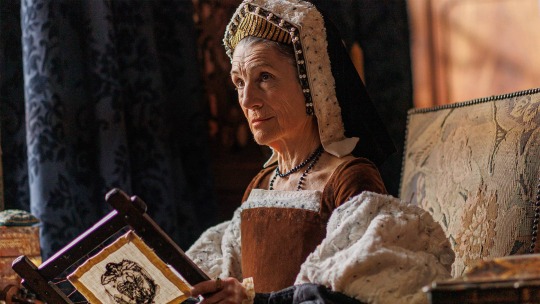
Harriet Walter in costume for The Mirror and the Light
#is it just me or does the gold striped fabric that they are using under the hoods look like sweatshirt cuff material from a distance#gable hood discourse commence#harriet walter#oh she will be a terrific lady pole#just walk up to crom and go: VIPER IN MY BUSOM loud enough to shatter glass
14 notes
·
View notes